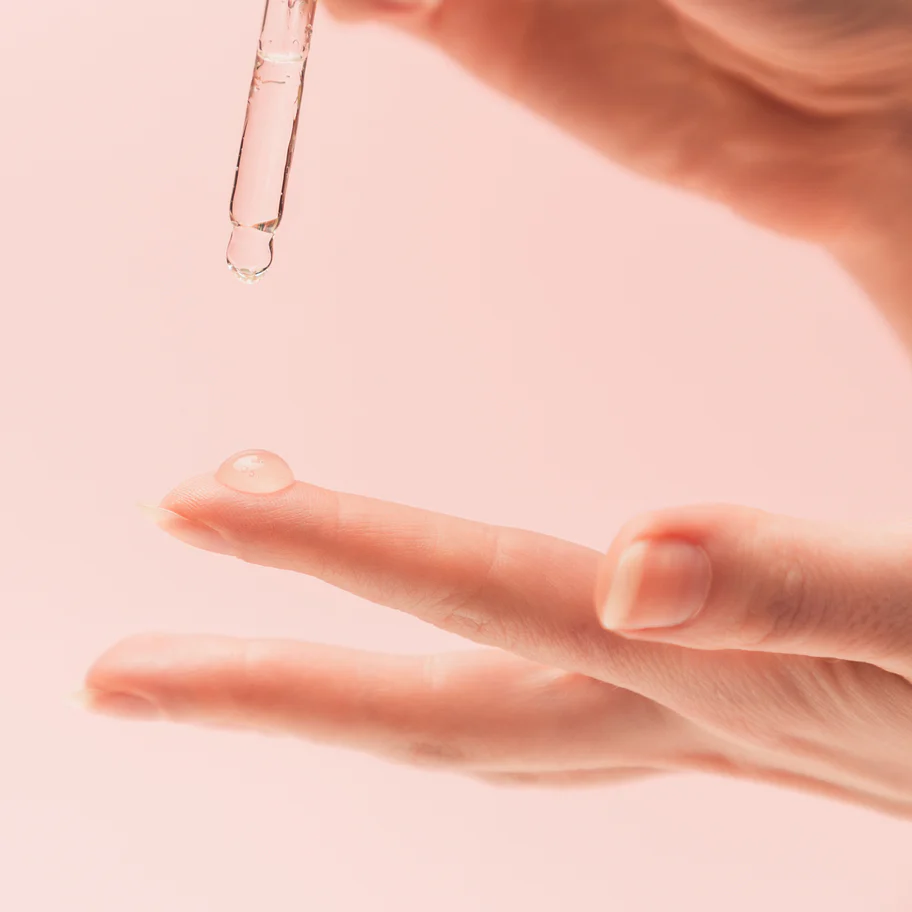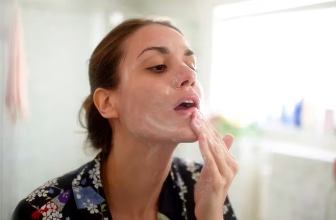Alpha Arbutin benefits

The Comprehensive Guide to Alpha Arbutin and Its Benefits for Skin Care
With constant changes in skincare, a variety of ingredients are now recognized for being both effective and safe. One such ingredient that has carved a niche for itself is Alpha Arbutin. Known primarily for its skin-brightening and hyperpigmentation-reducing properties, it has become a go-to solution for many who want a clearer, more radiant complexion without the harsh side effects often associated with other brightening agents.
This extensive guide will explore what alpha arbutin is, how it works, its multiple benefits, how to use it safely, and what makes it different from other similar compounds. Whether you are a skincare enthusiast or someone struggling with pigmentation issues, understanding alpha arbutin can help you make an informed decision about including it in your routine.
What is Alpha Arbutin?

It is a naturally occurring compound derived from the bearberry plant (Arctostaphylos uva-ursi), cranberry, blueberry, and pear trees. It belongs to a group of compounds called glycosides, which are known for their skin-brightening effects. From a chemical perspective, alpha arbutin consists of hydroquinone bonded to a sugar molecule called glucose.
Unlike hydroquinone, a well-known but potentially irritating skin lightening agent, it is a safer and more stable alternative. It releases hydroquinone slowly and in controlled amounts when applied to the skin, which makes it much gentler and suitable for sensitive skin types.
How Does Alpha Arbutin Work?
The main mechanism of alpha arbutin’s action is its ability to inhibit tyrosinase, an enzyme responsible for the production of melanin — the pigment that gives skin its color. Melanocytes, a type of specialized cell, generate melanin. When the skin is exposed to UV rays, melanocytes become overactive and produce excess melanin as a natural defense mechanism, which leads to pigmentation issues such as dark spots, melasma, freckles, and uneven skin tone.
It works by blocking tyrosinase, thereby reducing melanin production and helping to fade existing pigmentation while preventing new dark spots from forming. The gradual and sustained release of hydroquinone from alpha arbutin means that it can effectively lighten the skin without causing the irritation or sensitivity associated with hydroquinone itself.
Benefits of Alpha Arbutin for Skin
- Reduces Hyperpigmentation and Dark Spots
One of the most celebrated benefits of alpha arbutin is its ability to treat hyperpigmentation. Whether caused by sun damage, acne scars, hormonal changes (melasma), or aging, dark spots can be stubborn and difficult to treat. It inhibits melanin synthesis, allowing dark spots and discolorations to fade over time. Users often see noticeable improvement in uneven skin tone and dark patches after consistent use.
- Brightens Dull Skin
By suppressing melanin formation, it helps to brighten the overall complexion. The skin appears more radiant and luminous as pigmentation evens out. Unlike harsh exfoliants or bleaching agents, it provides gentle brightening without damaging the skin’s natural barrier.
- Safe for Sensitive Skin
Compared to other skin-lightening agents like hydroquinone or chemical peels, this is much gentler and safer for sensitive skin types. It doesn’t typically cause irritation, redness, or excessive dryness, making it suitable for daily use.
- Prevents Future Pigmentation
Not only does it fade existing pigmentation, but regular use can also prevent new dark spots from forming by controlling melanin production. This makes it an effective ingredient for those prone to pigmentation issues.
- Evens Skin Tone
Uneven skin tone caused by sun damage or acne can significantly impact skin’s appearance. It works to balance the skin tone by fading patches of discoloration, resulting in a smoother and more uniform complexion.
- Can Be Used on All Skin Types
This is generally safe for all skin types — dry, oily, combination, and sensitive. It is also less likely to cause post-inflammatory hyperpigmentation, which is a common concern with darker skin tones using other brightening agents.
- Non-Photosensitizing
Unlike some brightening ingredients such as retinol or certain acids, it does not increase your skin’s sensitivity to sunlight. However, using sunscreen daily is still essential to protect the skin and prevent pigmentation from worsening.
- Supports Anti-Aging Effects
By evening out skin tone and reducing dullness, it helps the skin appear more radiant and rejuvenated. Though not a direct anti-aging ingredient like retinol or peptides, a clearer and more radiant complexion often makes the skin look healthier and more youthful.
The effectiveness of alpha arbutin has been well documented in scientific literature. Here are some notable findings:
A 2006 study published in the Journal of Cosmetic Dermatology showed that alpha arbutin significantly inhibited tyrosinase activity and melanin production in cultured melanocytes.
Another clinical trial demonstrated that topical application of it over 12 weeks improved skin brightness and reduced dark spots with minimal irritation.
Comparative studies between alpha arbutin and hydroquinone found that alpha arbutin is similarly effective in skin lightening but far safer and less irritating, especially for long-term use.
These scientific validations provide a strong basis for its widespread use in skincare formulations.
Choosing the Right Product
This ingredient is used in many types of skincare products, including toners, lotions, creams, and serums. For best results, serums containing 1-2% alpha arbutin are recommended. Concentrations higher than 2% may not necessarily provide better results and could increase the risk of irritation.
Application Tips

Cleanse your skin thoroughly before applying arbutin products.
Apply alpha arbutin serum or cream to the areas of concern, such as dark spots, uneven patches, or all over the face if aiming for overall brightening.
Follow with moisturizer to lock in hydration.
Use sunscreen every morning. Sun protection is crucial to prevent further pigmentation and to maximize it’s effectiveness.
For best results, use arbutin products twice daily (morning and night). However, start with once daily if you have sensitive skin to observe how your skin reacts.
It pairs well with several other skincare actives:
Vitamin C plus Alpha Arbutin: It is a great combo for fading dark spots and making your skin glow.
Niacinamide: Enhances brightening effects while soothing the skin.
Hyaluronic Acid: Helps hydrate the skin and maintain moisture barrier.
Sunscreen: Protects the skin from UV damage and prevents dark spots.
Avoid combining alpha arbutin with strong exfoliants like high-concentration AHAs or BHAs in the same routine unless your skin can tolerate it, as this may increase sensitivity.
Alpha Arbutin vs Other Skin Brightening Ingredients
Alpha Arbutin vs Hydroquinone
Hydroquinone has long been considered the gold standard for treating hyperpigmentation but comes with significant risks, including irritation, ochronosis (a blue-black discoloration with prolonged use), and strict regulation in some countries.
Alpha arbutin provides similar results with a much safer profile. It’s gentler because it lets out hydroquinone bit by bit and in tiny amounts.
Alpha Arbutin vs Beta Arbutin
Beta arbutin is another form of arbutin but is less stable and less effective than alpha arbutin. Due to its instability, beta arbutin may degrade quickly, reducing its effectiveness in formulations.
Alpha Arbutin vs Kojic Acid
Kojic acid is another popular skin-brightening ingredient. While effective, kojic acid can be more irritating and is photosensitizing, meaning it can increase sun sensitivity. Known for its soothing nature, alpha arbutin is ideal for delicate or reactive skin.
Alpha Arbutin vs Vitamin C
Vitamin C is an antioxidant that brightens the skin by inhibiting melanin synthesis and neutralizing free radicals. Both alpha arbutin and vitamin C are effective brightening agents, but alpha arbutin tends to be more focused on pigmentation reduction, while vitamin C provides additional antioxidant protection and collagen stimulation.
Potential Side Effects and Safety Concerns
Used as directed, it is considered safe for the majority of skin types. Even so, there are a few things worth noting before adding it to your routine.
Skin Irritation: Rare but possible, especially if used with other potent actives. Conduct a patch test before full-face application.
Allergic Reactions: Uncommon, but discontinue use if redness, itching, or swelling occurs.
Pregnancy and Nursing: Limited data exists on its safety during pregnancy or breastfeeding. Consult a healthcare provider before use.
Sun Protection: Always use sunscreen daily. Although alpha arbutin is not photosensitizing, sun exposure can worsen pigmentation.
Frequently Asked Questions
Is alpha arbutin safe to use daily?
It’s safe to use every day, and applying it in both your AM and PM routines can enhance its effectiveness.
How long does it take to see results?
Results usually become visible after 4 to 6 weeks of consistent use, with more significant improvement after 8 to 12 weeks.
Can alpha arbutin be used on all skin tones?
Yes, it is effective and safe for all skin tones, including darker skin, which is often more prone to post-inflammatory hyperpigmentation.
Can I combine alpha arbutin with retinol?
Yes, but start slowly as retinol can increase skin sensitivity. Using this in the morning and retinol at night can help keep your skin calm and balanced.
Does alpha arbutin lighten the entire face?
It works by inhibiting melanin production and will brighten areas with pigmentation. If applied all over, it can help achieve an overall brighter complexion but does not bleach the skin.
Conclusion
Alpha arbutin stands out as a powerful yet gentle skin-brightening ingredient backed by scientific research and real-world results. Its ability to reduce hyperpigmentation, even out skin tone, and brighten dull complexions without harsh side effects makes it ideal for all skin types, including sensitive skin.
In a skincare market saturated with aggressive lightening agents, it offers a safe, effective alternative that works gradually and sustainably. For anyone struggling with dark spots, uneven pigmentation, or dull skin, incorporating this into your routine can be a game-changer.
If you want radiant, clear skin that glows with health and balance, consider adding a quality alpha arbutin serum or cream to your daily skincare regimen—and always pair it with broad-spectrum sunscreen for best results.
If you are looking for product recommendations or want help creating a skincare routine with alpha arbutin, feel free to reach out or browse our curated selections of trusted skincare products featuring this beneficial ingredient.
Thank you for reading!







